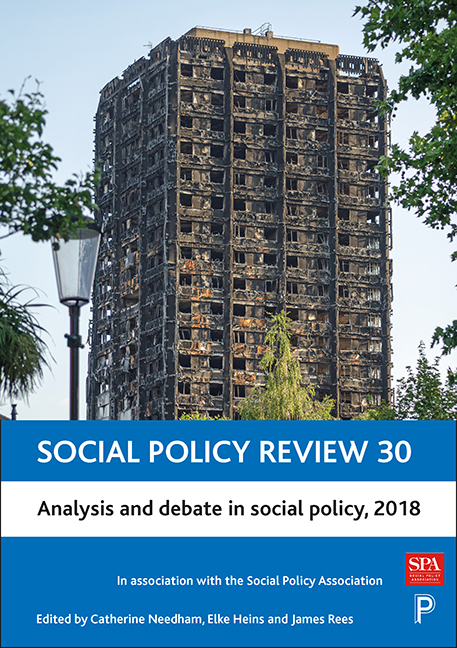Two - Modern slavery in the United Kingdom: an incoherent response
Published online by Cambridge University Press: 22 April 2022
Summary
Introduction
Ten years after the publication by the Joseph Rowntree Foundation (JRF) of the first national scoping study of modern slavery in the UK (Craig et al, 2007), discussion about modern forms of slavery is achieving some political and policy prominence, focused largely on the passage of the Modern Slavery Act 2015 (MSA, covering England and Wales) and its Scottish and Northern Irish counterparts. This chapter outlines developments leading to this legislation, summarises it and evaluates subsequent progress. It points to a range of issues underlying the need for a major reform programme to ensure that the legislative and policy tools required effectively to combat modern slavery are in place, usable and used. I also hope to encourage social policy and related academics/ teachers to take the issue of modern slavery seriously when reviewing taught curricula, given that modern slavery intersects with a range of key social policy themes including poverty, inequality, labour relations, gender, migration, criminal justice, the third sector, housing, social assistance and social work.
An earlier analysis (Craig, 2010) placed developing understanding and awareness of modern slavery in the UK in a global and historical context. In the eight years since then, although public understanding has grown and action to combat modern slavery in the UK is developing, there remains a long way to go. In 2010, the nature/scope and extent of modern slavery in the UK was poorly understood, with estimates of its extent extremely vague and based on little firm evidence. It was estimated in the mid-2000s that there were at any one time about 5,000 sex workers in the UK, most of them having been trafficked into the UK, 75 per cent of them female and 30 per cent under the age of 16 (UNICEF, 2006b). Possibly 10,000 adults had been trafficked into the UK by about 2008. Even now, the numbers of those said to be in modern slavery in the UK is disputed among those working in this area. In 2015 the Home Office suggested that, analysing accessible data sources, there were likely to be between 10,000 and 13,000 people in forms of modern slavery at any one time within the UK (Bales et al, 2015).
- Type
- Chapter
- Information
- Social Policy Review 30Analysis and Debate in Social Policy, 2018, pp. 27 - 46Publisher: Bristol University PressPrint publication year: 2018

